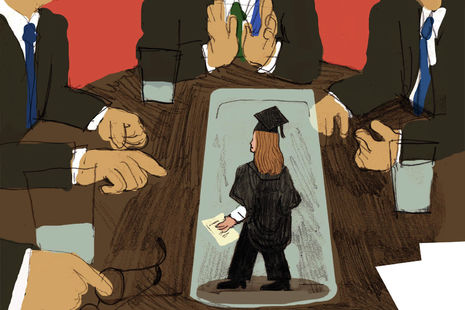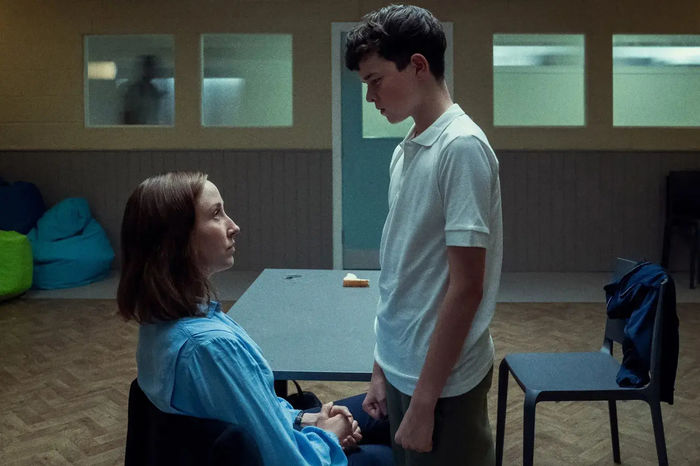What can Good Will Hunting teach us now?
Daisy Simpson revisits Good Will Hunting almost thirty years after its release to find out what it can teach us now

Matt Damon has a talent for playing the underdog. In the first film I ever watched him in, that underdog was Tom Ripley, the gently smirking conman with the mellifluous jazz voice and the knack for getting away with murder (literally). But, in Good Will Hunting, he embodies someone entirely different: not an effortless liar, or a sociopath overcome by a potent blend of class envy and sexual infatuation, but a genius born into poisonous circumstances.
This was far from the first film I’d seen with themes surrounding a child of poverty and neglect rising through the ranks due to the force of sheer, rough-diamond talent, but it highlighted something in an unusually perceptive way. Will’s girlfriend Skylar, the arrogant student he tells off in a bar, and others of their economically and socially privileged ilk are comfortable in the performance of intellectualism – because it’s what they’ve always been accustomed to. In other words, academic confidence is learned, not engrained – regardless of an individual’s relative level of intelligence or self-discipline. The true indicator is how such confidence is put into practice.
While the student in the bar attempts to twist it to his own vulgar benefit, attempting to depict himself as knowledgeable and switched-on to women he wants to seduce, Skylar merely lives with it. She loves Will no less when he’s a recently acknowledged mathematical gem than when he’s being invited to join high-profile companies and use his gifts for profit and international recognition.
“At Cambridge, the phrase ‘imposter syndrome’ is used so much that it’s in danger of losing its meaning”
Not all filmic attempts at depicting the ravages of abuse and addiction in the domestic sphere are as successful as Good Will Hunting – or, at least, as successful at creating sympathy for the protagonist. Shannon Murphy’s 2019 tearjerker Baby Teeth, a teen illness romance in the same vein as The Fault In Our Stars, is a banquet for the eyes and the ears, and features impressive performances (particularly from its lead, Little Women’s Eliza Scanlen). Where it falls short is in its attempts to endear us to Moses, the n’er-do-well that the dying adolescent protagonist Milla becomes smitten with.
Moses has a lot in common with Will: his parents are absent to the point of nonexistence, he has to rely on the kindness, if not of strangers, than of sympathetic friends, and he has traumatic memories of his parents’ vile behaviour, recounting a time when his father left him in a parked car for hours so that he could cheat on his mother. But Moses isn’t just a dealer – he sees the wide-eyed girl with cancer, who’s fallen madly in love with his hell-raising free spirit ways, as a source of drugs to sell. She’s sixteen, he’s in his early twenties, and he relentlessly exploits her feelings for him. He takes this sick child out in the middle of the night, makes her jealous with another woman, allows her to drink alcohol while she’s still undergoing cancer therapy, and then leaves her to sleep on a roof and potentially freeze to death.
“When I finished watching the film with my own parents, I was struck with a sense of gratitude”
Where Good Will Hunting humanises Will, showing him to be a damaged soul with a good heart and a fantastic mind, Baby Teeth continually shows Moses to be a user, a manipulator, and, arguably, a groomer then demands that we care about him anyway, without revealing any positive traits. Will, despite his evident and harmful flaws, is sweet and brilliant, while Moses is neither.
At Cambridge, the phrase ‘imposter syndrome’ is used so much that it’s in danger of losing its meaning. But the protagonist of Good Will Hunting is a genuine example of the phenomenon. His situation is not as simple as being clever and constantly surrounded by equally clever people. What he lacks is what a lot of us instinctively take for granted; the nurturing home environment that instils us with a sense of our own capabilities.
While our parents encouraged us to demonstrate our skills and expand our vividly curious imaginations, Will’s father demanded that he choose an object with which to be abused. When I finished watching the film with my own parents, I was struck with a sense of gratitude.
That is not to say, of course, that our occasional (or, in exam season, more than occasional) lapses in self-belief render us innately out of touch. It merely means that excellent films like Good Will Hunting can help us to recontextualise them, reinforcing the proverbial cliché that the most significant truths can be found in that which we have made up.
 News / Cambridge academics sign open letter criticising research funding changes22 February 2026
News / Cambridge academics sign open letter criticising research funding changes22 February 2026 News / University Council rescinds University Centre membership20 February 2026
News / University Council rescinds University Centre membership20 February 2026 News / Supporters protest potential vet school closure22 February 2026
News / Supporters protest potential vet school closure22 February 2026 News / Hundreds of Cambridge academics demand vote on fate of vet course20 February 2026
News / Hundreds of Cambridge academics demand vote on fate of vet course20 February 2026 Comment / A tongue-in-cheek petition for gowned exams at Cambridge 21 February 2026
Comment / A tongue-in-cheek petition for gowned exams at Cambridge 21 February 2026








